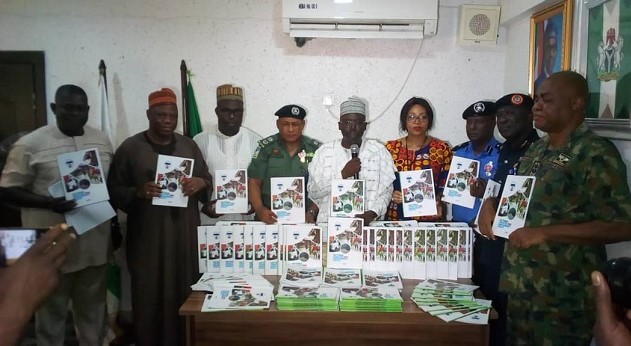The National Emergency Management Agency (NEMA) on Friday, November 15, 2019 launched a National Disaster Risk Management Policy document in response to the Sendai Framework for Disaster Risk Reduction.

Adopted by UN member states in 2015, the Sendai Framework for Disaster Risk Reduction 2015 to 2030 outlines targets and priorities for action to prevent new and reduce existing disaster risks.
Mr Mustapha Maihaja, Director-General, NEMA, while launching the document, said that the document is aimed at building safer and more resilient communities.
He added that the policy document concentrated on four priority areas namely: awareness and understanding of disaster risk, strengthen multi-stakeholder governance system for disaster risk management, enhance preparedness capacity to reduce exposure and vulnerability, and strengthen resilience disaster, in order to support development of strong governance structures in the country.
Maihaja added, that to build resilient and sustainable societies capable of addressing both climate and disaster risks, it was important to integrate risks, into development, planning and budgeting.
“Globally, disaster risk management has witnessed improved legislation, awareness, early warning systems, better preparedness, including establishment of sustainable structures and national platforms for disaster risk reduction.
“But these have not been sufficient, to generate the transformational change required in risk governance.
“If we truly want to get ahead of the curve of humanitarian need and economic losses, we must set up strategies to address underlying risk drivers.
“It is projected that if we continue with the current business as usual, an estimated amount of N3 trillion will be required to curb and respond to disasters across the 36 states in Nigeria in 2020.
“This will be mainly for providing short term relief and replacement of damaged infrastructures.
“To achieve this, we must deploy appropriate instruments and we have developed several plans and guidelines,” he said.
The event had in attendance, representatives of the Police, Fire Service, UNOCHA, Ministry of Humanitarian Affairs, Disaster Management and Social Development, among others.
The Policy, which was developed with the support of the United Nations Development Programme (UNDP), is elaborated for a 10-year period and will be reviewed every five years.
